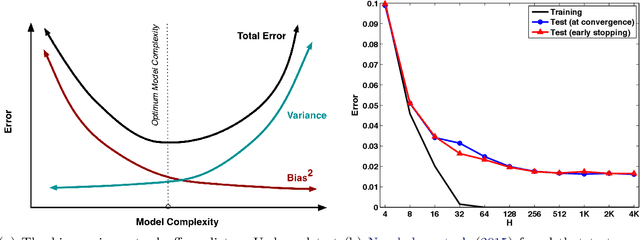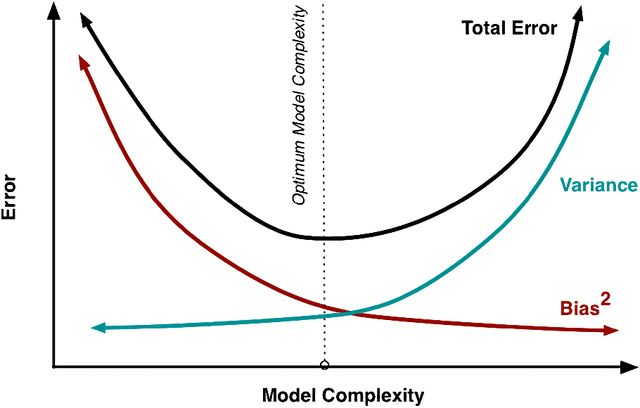On the Bias-Variance Tradeoff: Textbooks Need an Update
Paper and Code
Dec 17, 2019



The main goal of this thesis is to point out that the bias-variance tradeoff is not always true (e.g. in neural networks). We advocate for this lack of universality to be acknowledged in textbooks and taught in introductory courses that cover the tradeoff. We first review the history of the bias-variance tradeoff, its prevalence in textbooks, and some of the main claims made about the bias-variance tradeoff. Through extensive experiments and analysis, we show a lack of a bias-variance tradeoff in neural networks when increasing network width. Our findings seem to contradict the claims of the landmark work by Geman et al. (1992). Motivated by this contradiction, we revisit the experimental measurements in Geman et al. (1992). We discuss that there was never strong evidence for a tradeoff in neural networks when varying the number of parameters. We observe a similar phenomenon beyond supervised learning, with a set of deep reinforcement learning experiments. We argue that textbook and lecture revisions are in order to convey this nuanced modern understanding of the bias-variance tradeoff.
 Add to Chrome
Add to Chrome Add to Firefox
Add to Firefox Add to Edge
Add to Edge